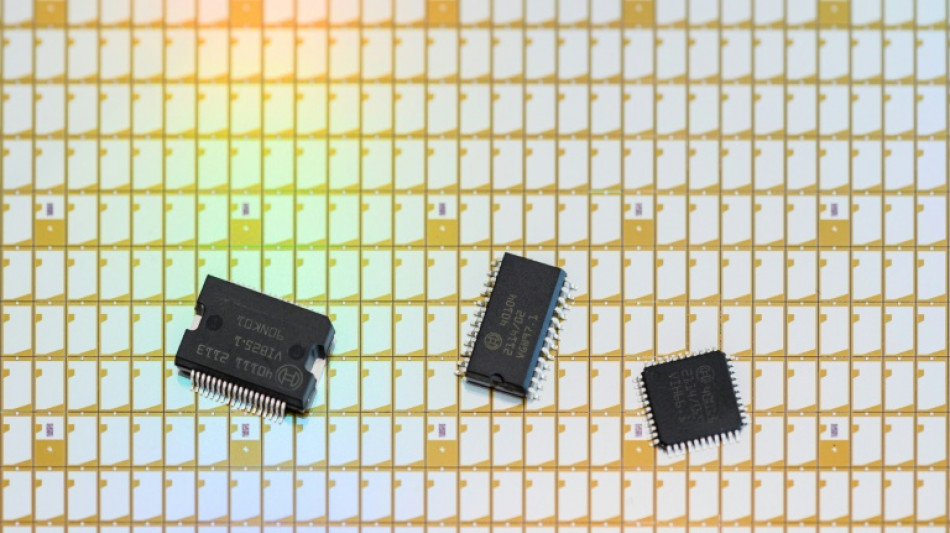
-
 Jubilant Peruvians celebrate new pope at mass in adoptive city
Jubilant Peruvians celebrate new pope at mass in adoptive city
-
Scottish refinery closure spells trouble for green transition
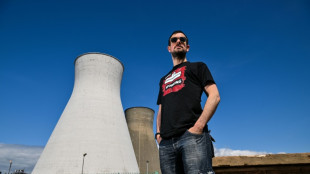
-
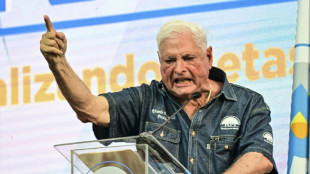 Convicted ex-Panama president Martinelli granted asylum in Colombia
Convicted ex-Panama president Martinelli granted asylum in Colombia
-
IPL chiefs in talks about restart following ceasefire: reports
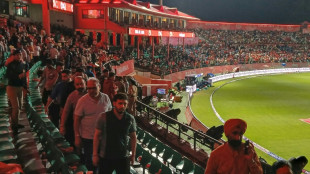
-
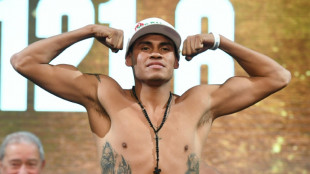 Navarrete beats Suarez on technical decision to keep title
Navarrete beats Suarez on technical decision to keep title
-
Scans clear Wallabies fly-half Lolesio of serious back injury
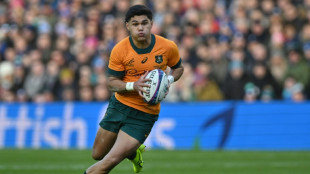
-
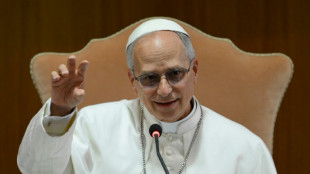 Leo XIV to address faithful with St Peter's prayer
Leo XIV to address faithful with St Peter's prayer
-
T-Wolves grab 2-1 NBA playoff series lead as Celtics get key win

-
 Gaza war casts shadow over Cannes film festival
Gaza war casts shadow over Cannes film festival
-
'Treasure hunt': tourists boost sales at Japan's Don Quijote stores
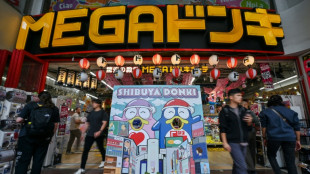
-
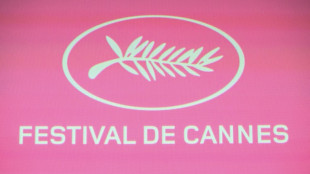 Cannes Festival: the films in competition
Cannes Festival: the films in competition
-
Cannes film festival: what to look out for
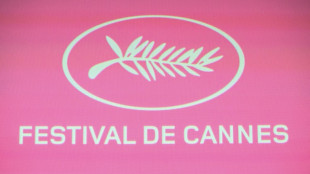
-
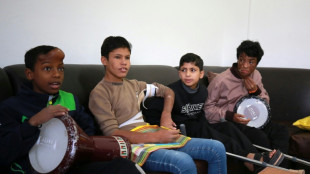 Jordan hospital treats war casualties from across Middle East
Jordan hospital treats war casualties from across Middle East
-
As Trump family's Gulf empire grows, rulers seek influence, arms, tech
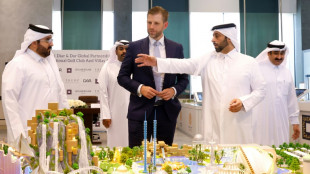
-
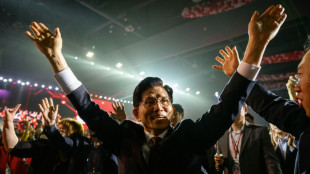 S. Korea conservatives choose presidential candidate after last-minute chaos
S. Korea conservatives choose presidential candidate after last-minute chaos
-
Trump hails 'total reset' in US-China trade relations as talks continue
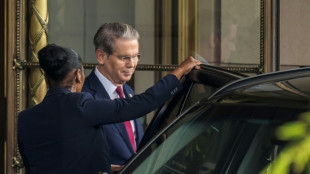
-
 Film claims to name killer of slain journalist Shireen Abu Akleh
Film claims to name killer of slain journalist Shireen Abu Akleh
-
Under Trump pressure, Columbia University ends semester in turmoil
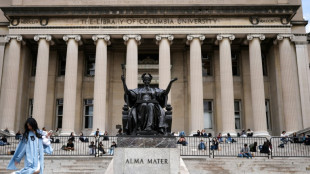
-
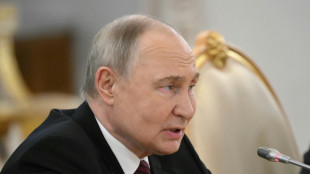 Putin proposes direct Ukraine talks but quiet on 30-day ceasefire
Putin proposes direct Ukraine talks but quiet on 30-day ceasefire
-
Trump hails US-China trade 'reset' after first day of talks
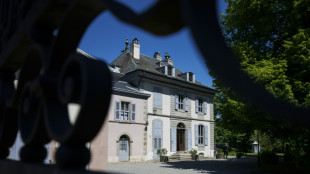
-
 Jeeno leads Boutier by one at LPGA Americas Open
Jeeno leads Boutier by one at LPGA Americas Open
-
Lowry, Straka share lead at windy Truist
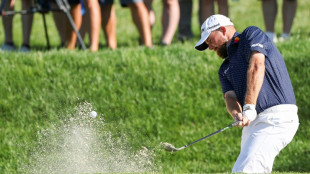
-
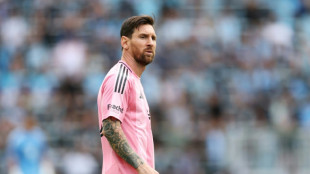 Messi suffers worst defeat in MLS as Miami fall again
Messi suffers worst defeat in MLS as Miami fall again
-
Celtics overwhelm Knicks to pull within 2-1 in NBA playoff series

-
 Toulouse crush Toulon to reach Top 14 semis as Castres pay tribute to Raisuqe
Toulouse crush Toulon to reach Top 14 semis as Castres pay tribute to Raisuqe
-
Marseille, Monaco clinch Champions League qualification from Ligue 1

-
 'One of those days': Atletico record-breaker Sorloth hits four
'One of those days': Atletico record-breaker Sorloth hits four
-
Toulouse's Ntamack suffers concussion in Top 14, Willemse nears exit

-
 Record-breaker Sorloth hits four as Atletico smash Real Sociedad
Record-breaker Sorloth hits four as Atletico smash Real Sociedad
-
'Weight off my shoulders': Bayern's Kane toasts breakthrough title
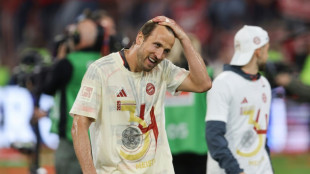
-
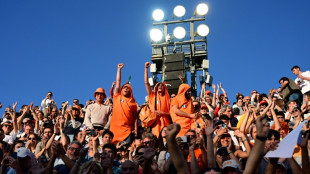 Sinner grateful for 'amazing' support on Italian Open return from doping ban
Sinner grateful for 'amazing' support on Italian Open return from doping ban
-
Hamburg return to Bundesliga after seven-year absence

-
 Toulouse's Ntamack suffers concussion in Top 14 clash
Toulouse's Ntamack suffers concussion in Top 14 clash
-
India, Pakistan reach ceasefire -- but trade claims of violations
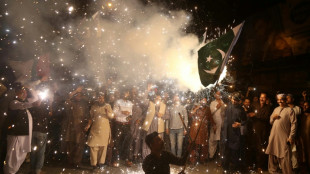
-
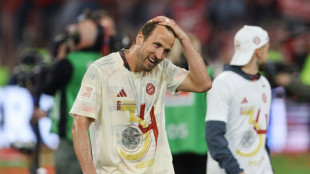 'Long time coming': Bayern's Kane toasts breakthrough title
'Long time coming': Bayern's Kane toasts breakthrough title
-
US, China conclude first day of trade talks in Geneva
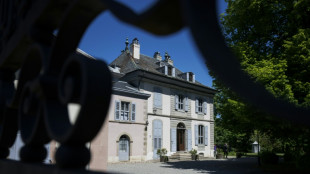
-
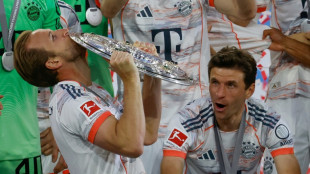 Kane tastes first title as champions Bayern bid farewell to Mueller
Kane tastes first title as champions Bayern bid farewell to Mueller
-
Benfica deny Sporting to take Portuguese title race to wire

-
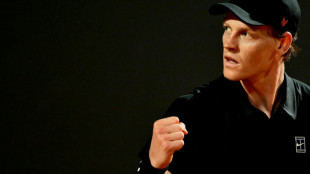 Sinner makes triumphant return from doping ban at Italian Open
Sinner makes triumphant return from doping ban at Italian Open
-
Sinner wins at Italian Open in first match since doping ban
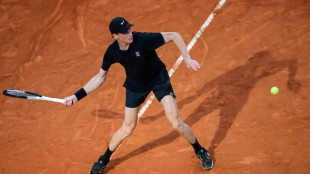
-
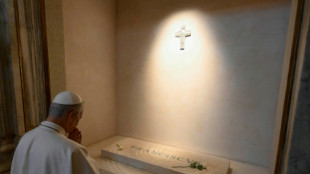 Leo XIV, new pope and 'humble servant of God', visits Francis's tomb
Leo XIV, new pope and 'humble servant of God', visits Francis's tomb
-
India claims Pakistan violated truce, says it is retaliating
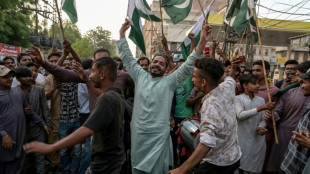
-
 Champions League race hots up as Man City held, Villa win
Champions League race hots up as Man City held, Villa win
-
Kane tastes first title as champions Bayern see off Mueller

-
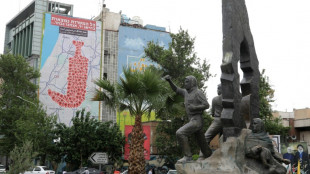 US envoy calls enrichment 'red line' ahead of new Iran talks
US envoy calls enrichment 'red line' ahead of new Iran talks
-
Hastoy lifts La Rochelle as Castres pay tribute to Raisuqe

-
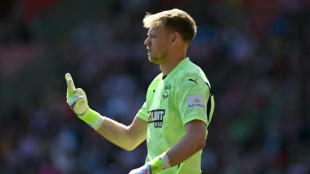 Southampton avoid Premier League 'worst-ever' tag with Man City draw
Southampton avoid Premier League 'worst-ever' tag with Man City draw
-
Injury forces Saints quarterback Carr to retire

-
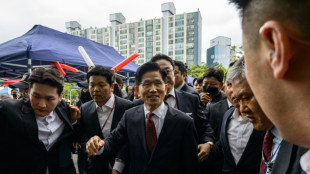 S.Korea conservative party reinstates candidate after day of turmoil
S.Korea conservative party reinstates candidate after day of turmoil
-
Verdict due Tuesday in Depardieu sexual assault trial
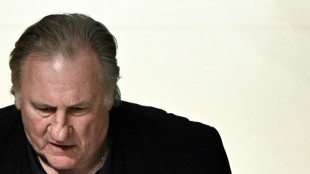

Tech sanctions on Russia a double-edged sword
Sanctions to limit Russia's access to tech components like semiconductors may temporarily hobble its defence industry, but analysts said they risk boomeranging on the West if Russia withholds key raw materials.
Such a move risks pushing Moscow to rely more on China, which will further reduce the West's leverage.
The sanctions the West adopted on Russia over its invasion of Ukraine have mostly targeted the financial sector, but some have begun to limit its access to high-tech components.
Japan, which is home to industrial giant Fujitsu, said Friday it will block exports to Russia of "general-purpose goods such as semiconductors".
While the EU is still considering what steps to take, the United States imposed on Thursday a ban that targets the defense and aerospace sectors and includes semiconductors, computers, telecommunications, information security equipment, lasers, and sensors.
The United States can impose its decisions beyond its borders by threatening to shut recalcitrant companies and countries off from access to key US technology.
That is what the Trump administration did in 2019 when it banned Chinese smartphone maker Huawei from using semiconductors and software that use US technology.
Taiwanese semiconductor manufacturer TSMC, which was a major supplier of chips to Huawei, had to cut off supplies as it used US technology in their manufacturing.
Huawei had to turn to Chinese chip manufacturers, which didn't have the capacity to build semiconductors with as much processing power.
"Of course Russia could strengthen its ties with China but this doesn't mean the transition could happen overnight," said Francisco Jeronimo, an analyst at market intelligence firm IDC.
"Just think about how long it took for Huawei, how tough it is to come up with a solution different from an American company," he told AFP.
However Jeronimo noted that Russia may not be as dependent upon US technology as is believed.
The Russian government announced plans several years ago to shift the public administration off Windows and develop alternatives for the consumer market as well.
- Shortages -
"China is facing exactly the same challenges," said Jeronimo.
"They have been pushing their own technology."
Russia accounts for only one percent of global semiconductor sales, according to the industry's trade association, which means manufacturers will suffer little impact from a loss of sales.
But Moscow could disrupt the global supply chain for semiconductors if it adopts counter-sanctions to block exports of raw materials key for their manufacturing.
At the beginning of February, experts from Techcet, a technology consultancy, published a report showing that the US is dependent upon Russia for imports of the gases neon and C4F6, plus palladium, which are used to manufacture semiconductors.
"Russia is a crucial source of C4F6 which several US suppliers buy and purify for use in advanced node logic device etching and advanced lithography processes for chip production," said the Techcet report.
It said the US uses about 8 million tonnes of C4F6 per year.
Russia is also the top supplier of neon gas -- a side product of steel manufacturing -- which is purified in Ukraine before being exported.
Neon gas is used for the precision laser etching of circuits on silicon wafers.
Russia also produces a third of the world's palladium, a metal used in computer memory chips and catalytic convertors in car exhaust systems.
Supply disruptions in these materials could have consequences for semiconductor manufacturers, which were already having difficulty meeting the spike in demand during the pandemic.
Global auto manufacturers have suffered greatly from the chip shortage, having to idle production lines.
Any disruptions in raw supplies for the semiconductor industry will and the shortages of chips "will definitely last a lot longer. and consumers will pay the price with the device they want to buy," said Jeronimo.
Y.Nakamura--AMWN